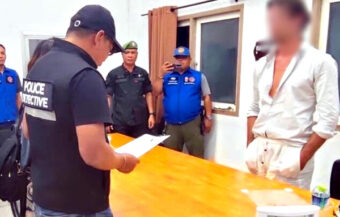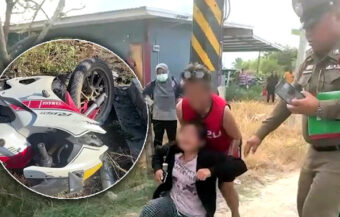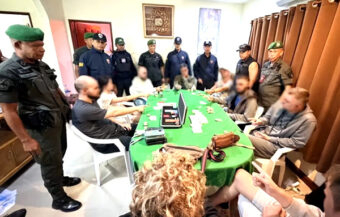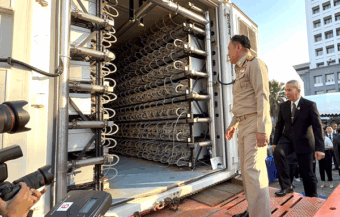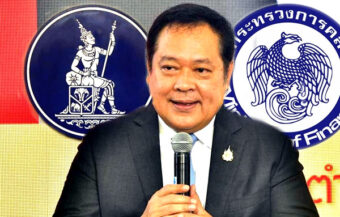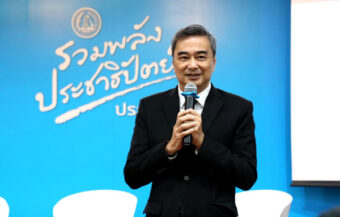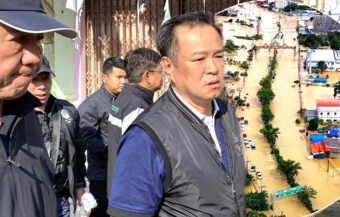The scandal has embroiled the former prime minister’s son Mr Panthongtae Shinawatra or ‘Oak’ who has denied receiving any benefit from the loans and strenuously defended himself against money laundering allegations.
Thailand’s ex-premier Thaksin Shinawatra who today still deeply polarises Thailand politically was handed a victory on Friday when the Supreme Court cleared him in a long-running legal case linked with Krung Thai Bank in which the prosecution claimed he was the ‘big boss’ who directed the approval of dubious loans by the state bank.
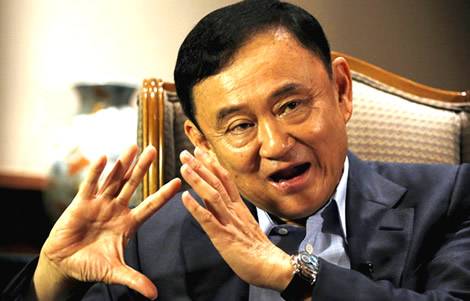
Thailand’s Supreme Court on Friday handed down the final verdict clearing the former Thai premier in the Krung Thai Bank scandal involving loans of ฿9.9 billion to a property development company in 2003 and 2004 that was at the time listed as a non-performing debtor of the bank.
The court cleared the ex Thai leader of any culpability in relation to the affair where he was referred to by a former director of the bank as the ‘big boss’ in evidence. The Thai Supreme Court ruled finally on Friday that there was no substantive evidence to implicate Mr Thaksin as the guiding force behind the decision of the bank to lend the money.
Supreme Court rejects evidence of key state witness and former KTB Bank board member
It follows evidence by the key witness in the prosecution case, Mr Chainarong Intharmeecha who was a member of the board of KTB that he had been told by a senior executive with the bank Mr Suchai Jaovisidh that the loans were authorised by a ‘big boss’ and that everything would work out fine. The board member said in evidence that he had assumed that big boss to be the then prime minister Thaksin Shinawatra.
Witness told another enquiry that the ‘big boss’ might have been Thaksin or his wife
However, on Friday, the court pointed out that in other evidence to a separate enquiry, the board member had suggested that the big boss relating to the affair was either Thaksin Shinawatra or his then wife Khunying Potjaman Na Pombejra. The director of Krung Thai Bank had given this evidence to another body, the now-disbanded the Assets Scrutiny Committee.
Case against him stalled for a period when the former PM left Thailand skipping bail in 2008
The case against Mr Thaksin was submitted by prosecutors to the court in June 2012 and taken up it on July 1st that year. At one point, another trial linked to the matter was suspended after Mr Thaksin failed to return to Thailand prior to his conviction in 2008 when he skipped bail while attending the Beijing Olympics. He was subsequently handed down a jail term of two years for abuse of power but remains a fugitive from justice despite the government’s ongoing attempts to have him arrested. The ex-premier is thought to have influential friends worldwide.
In 2010, Thailand’s relationship with Cambodia became deeply strained when it emerged that the neighbouring country had appointed Thaksin as an economic advisor
19 people connected with the KTB loans scandal have been jailed with stiff prison sentences
The KTB bank loans scandal has seen 19 defendants in the affair handed down stiff jail terms by Thai courts many of them serving 12 years and 18 years jail terms for malfeasance.
The controversy has also swept up Thaksin’s son Panthongtae Shinawatra who was investigated by the Department of Special Investigation for receiving some of the money linked to the loan packages which were paid out in hundreds of different payments.
Thaksin’s son has defended himself in an investigation into loans connected with the scandal
Mr Panthongtae or ‘Oak’ has persistently denied the charges and explained how any monies he received from bank officials subsequently implicated in the affair were paid back by him. One case involved a planned car import business which never got off the ground and saw him repay ฿10million to a KTB official who was subsequently jailed. Another official tried to persuade him to buy shares in his name but he declined.
Krung Thai Bank seen as a pioneering state bank
Krung Thani Bank was formed in March 1966 from a merger between the government-owned Kaset Bank and Monton Bank. The bank’s logo is the Vayupaksa bird on a light blue background, a symbol also used by the Thai Ministry of Finance.
The bank is closely associated with business in Thailand. It was the first state-owned Thai bank to float on the SET in 1989 and is seen as being at the forefront of innovation. The state-owned bank also handles disbursements for government agencies including tax refunds.



